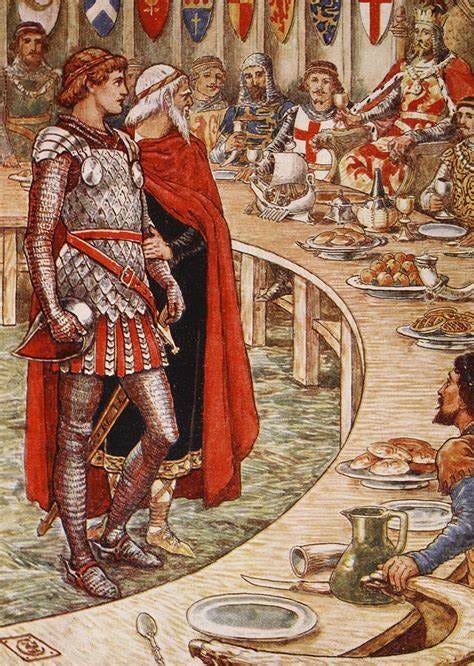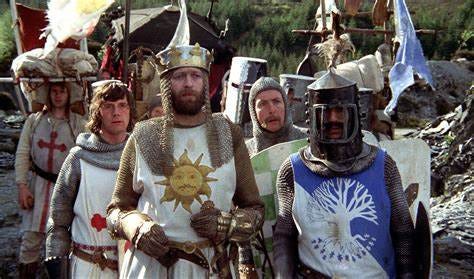I recall, back around 25 years ago, I started taking a keener interest into the history of England. I thought that as I was English and I live here, it would be prudent to understand what the fuss is all about. I did study history at school, but had little interest in the Corn Laws, the Rise of Methodism and the Spinning Jenny. I was far more enchanted by the ancient histories of the Romans, Greeks and Egyptians.
The first piece of eyebrow raising information I found, was the oral traditions of the English. Are you aware of them?
Did you know the English trace their heritage back to Troy and the Trojan War? Yes, a young warrior called Brutus escaped the collapsing city and ended up in Totnes, Devon. He then slew the giants of Albion and establish the first Briton colony.
The English have another origin tradition which links them to Sceaf, the fourth son of Noah. You may be thinking, I thought Noah only had three sons. Well, according to English traditions, Sceaf was born on the Ark during the Great Flood and become the ancestors of those in England.
These stories fell out of favour in the 1800s. Probably due to the new study of history, which rather than trying to explain ‘Why are we here?’, it sought to uncover what really happened in the past. Rather than believing oral traditions at face value, it preferred to look at primary and secondary written evidence.
Other ‘forgotten’ stories include Albina and her sisters, Lear of Britain (inspiration for Shakespeare’s King Lear) and of course, King Arthur. His life is shrouded in mystery, but had a significant impact upon the mindset of the English. The ancient stories of Arthur inspired generations of English, from the Medieval monarchs to Victorian artists and poets. These tales even provided the narrative to one of the funniest comedy films of all time, Monty Python and the Holy Grail.
Other oral traditions talk about Joseph of Arimathea, who came to England with the young Jesus, landing at an island of the coast of Cornwall at Looe. And after the death of Christ, Joseph returned and made his way to Glastonbury with the Holy Grail.
The myths of the Greek gods are well known, but these wonderful home grown myths are largely forgotten by most people today. These stories were important in the cultural founding of England and therefore can help us better understand English Cultural Heritage.
I will finish with a story about the Scottish. Did you know that they also trace their heritage back to the Trojan War? Though they were on the Greek side.
After the war, their ancestors travelled to Egypt, but were not welcomed and moved on. Then they went to what is modern day Spain, but again soon moved on. Then they travelled to Northern Ireland, eventually colonising the Isle of Bute. After a while, this became too small and they ended up in Scotland.
So the centuries of wars and skirmishes between the English and the Scottish are a symbolic continuation of the Trojan and Greek conflict, fought over three millennia ago. Surely, this deep mythical history helps explain the relationship between our two fair nations.
Alexander writes three newsletters. The Tales of Old England Christendom is where he writes about Anglo-Saxon Christianity. The second newsletter is called the Tower of Adam and here he writes about theology. The final one is called Agloria, where he discusses the intersection between culture and theology. You can find out more by clinking the links.
If you enjoyed this article, please consider subscribing to receive more articles like this one.
If you have a comment, please click this link to the comments form. It might appear in the Letter’s Page, which will be published next week.
Finally, we would encourage you to share this with your friends and family. They might like these stories too.








